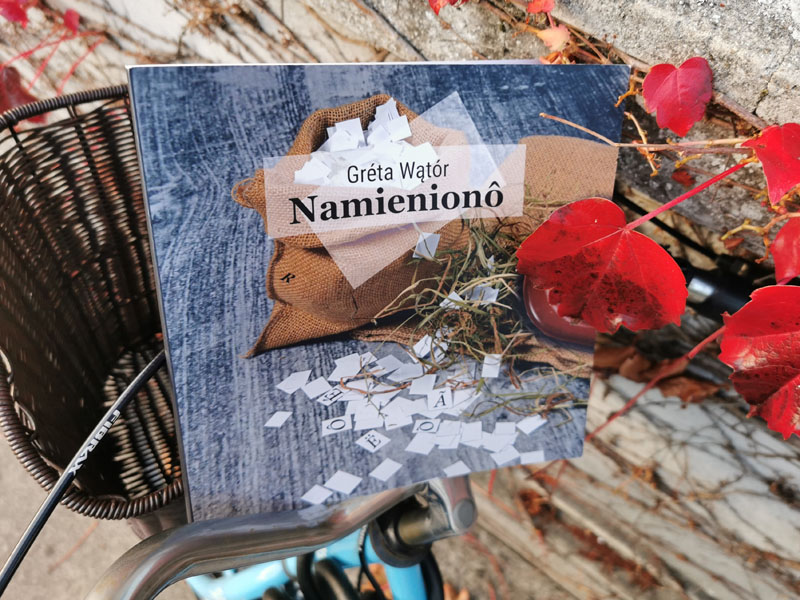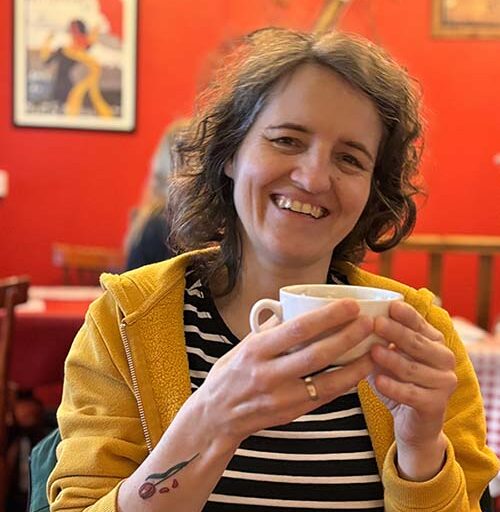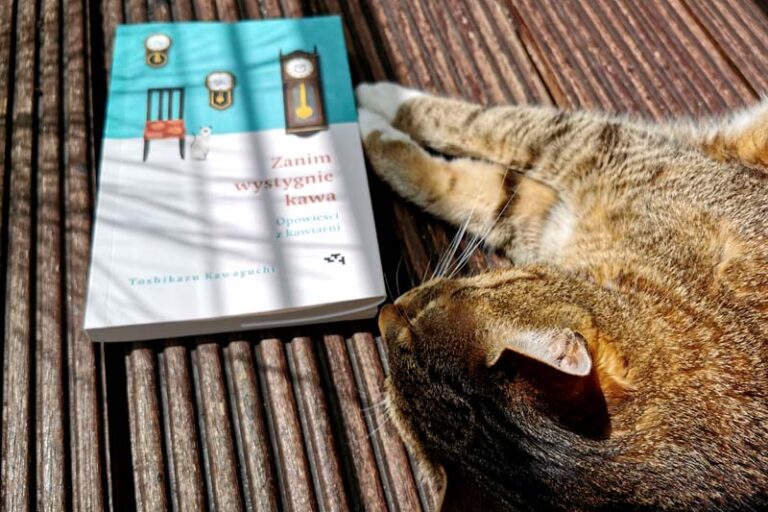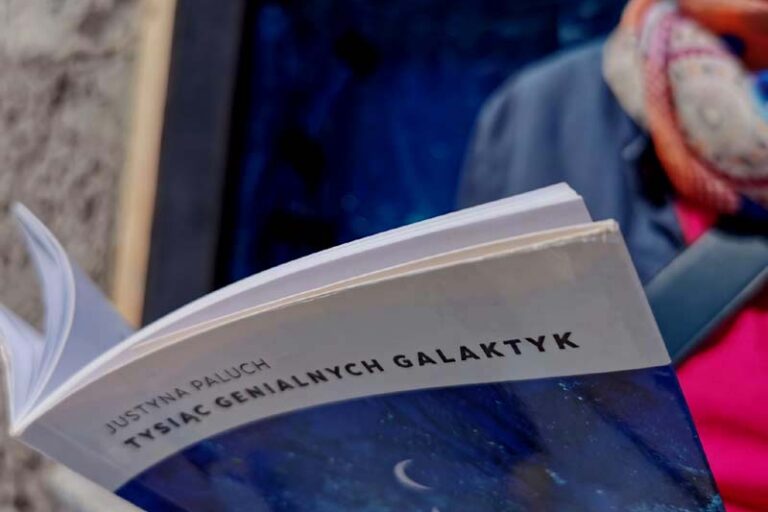This post is also available in:
 polski (Polish)
polski (Polish)
One afternoon, Destined / Namienionô – a bilingual poetry book by Małgorzata Wątor fell through the letter slot in the blue door of my apartment in Galway, Ireland. A first poem called to me in the corridor yet.
Bedside cabinet
I put my glasses on the chest next to the bed
God was where I left him. He was wearing
A blue dressing gown, an outworn tracksuit, and red nails.
(He fell asleep above the keyboard)
Next to the text I saw the windows-eyes of an abandoned house on the black-and-white photography. These natural shots made me wonder where I had left God on my own, and is he still there?
Because Małgosia Wątor’s poems speak straight and it makes you look at the various particals of your ordinary life.
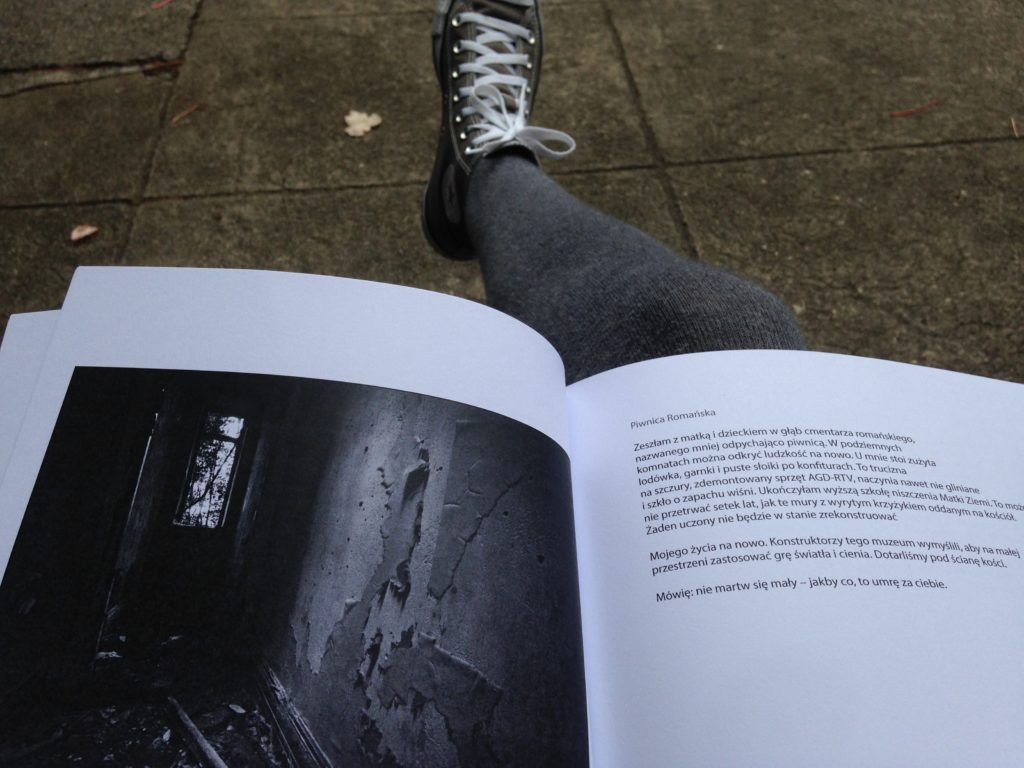
My poems are the rhythm of my life
- Each poems is a confession of something: a mystery, a secret, a memory. If the poetry was not honest, it would not be true, and if it is not true, no one wants to read it.
Małgorzata’s poems are sharp and always on the move. Even sometimes they go blind because the wipers on the glasses do not work. The feelings in them become a bicycle, a car, they burst like a balloon, go down to the cellar.
- I got the nickname “Bike” which gave me the late poet Andrzej Szczepanik. He could not remember my name, but he remembered very well my poem: “A man from the bike”.
Thoughts are stuck in the traffick, and the poet has her eyes open to the ordinary reality, she scrolls it and not afraid to curse, touch difficult emotions or overthrow platitude of live.
Wiedno Kaszëbë ë wiedno Kaszëbi
However, when I turn the book, I find a completely different land of Slavic mithology and rituals. In this part of book, the poems are written in Kashubian language. And Wątor presents a completely different style of writing, a form of a short and light story.
- The Kashubian part of the book is a reflection of my interest in Slavic mythology. I take the reader on a journey through the rituals I have invented and beliefs in gods and demons.
Below, you can read the poem in Kashubian language.
Wòdin
Mòże mrëczec jakno miedwiédz?
Mòże fërkòtac jakno charłãżnik?
Mòże szemarzëc jakno trôwka?
Mòże brzãczec jakno mùcha?
òrganë mòrsczé Mòże jegò grzëmią?
Mòże mòcno żôgùje jak sus?
Mòże tak chôłpac dzélëczczi lëftu?
Ë przë tim sã tak jak gbùr wëdąc
Mòże pòdnaszac sã ë ùpadac?
Òn mòże wszëtkò!
Naju Pón Mòrza Wòdin.
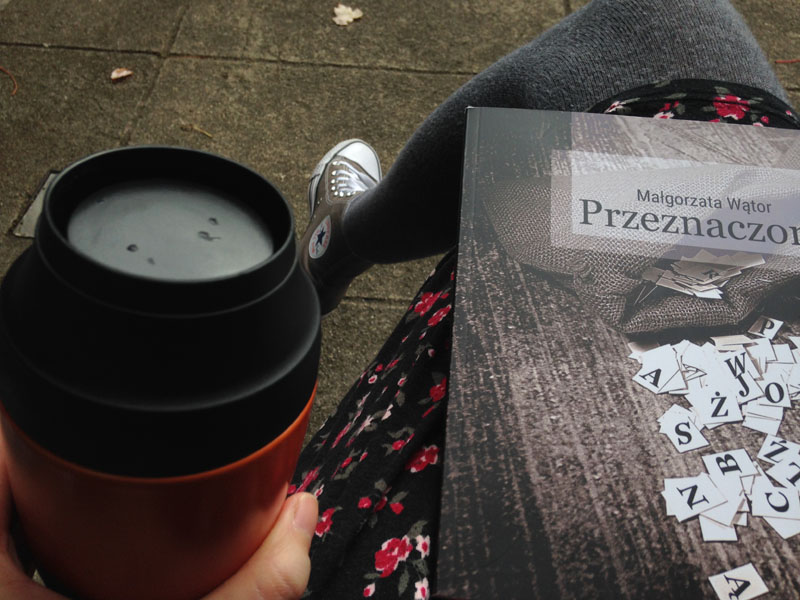
Regionalism connects two such different parts of the book. In the poems we find the amber bear of Słupsk or Romanesque Celar of Gdańsk, cities of the author. Because she was born in Słupsk, and lives in Gdańsk.
Bridge
For the first time in my life I read something in Kashubian. When I was a little girl, I use to visit Kashubia often, then I met people who spoke Kashubia language, but I did not know that over one hundrd thousand people communicate in this language in Poland. And language is also varies in differentes region of Kashubia. Małgosia’s book awoke me more to the culture that has been developing for centauries. Because Kashubian are Slavic indigenous population of Pomerania. And which I know little about, although Kashubia is my favorite region of Poland.
- We Kashubians, we say that Kashubians are made of blood and bones as if we are not only connected by blood, but also by visual features when we talk about our identity, having the conviction that we cannot be more saturated with Kashubian as we are. The Kashubian language is for me a spiritual bridge between me and my grandmother. My grandma passed away a long time before I was born, but my whole family readily admits that we are visually the same. Now, Kashubian is also a language of friendship for me, and its greatest value – a sense of union, community, and belonging.
I have the impression that this is a task (destiny) to be performed by poet Małgorzata Wątor, to remind us that it is worth cultivating and discovering cultures that exist side by side, and for which sometimes there is no place. Will I learn at least a few words in Kashubian? Will I go back to the places inside me I run away from? And what will you do?
“Destined” by Małgorzata Wątor is intriguing. Also the black and white photos inside the book taken by Radosław Wątor, the poet’s cousin. The images show the ruins of houses and the equipment that can be found there. “Home” – was supposed to be the original title of this book and it did not just disappear. We can discover it as destiny, step by step, and from various perspectives.
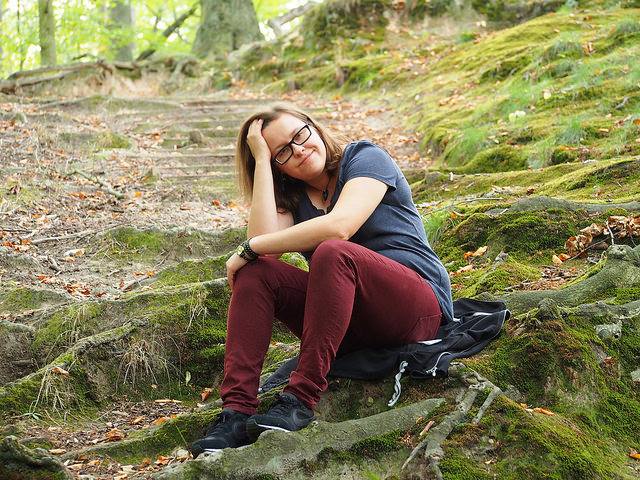
What do you think about this post? I will appreciate your fedback. Thank you!
All rights for all photos reserved.

